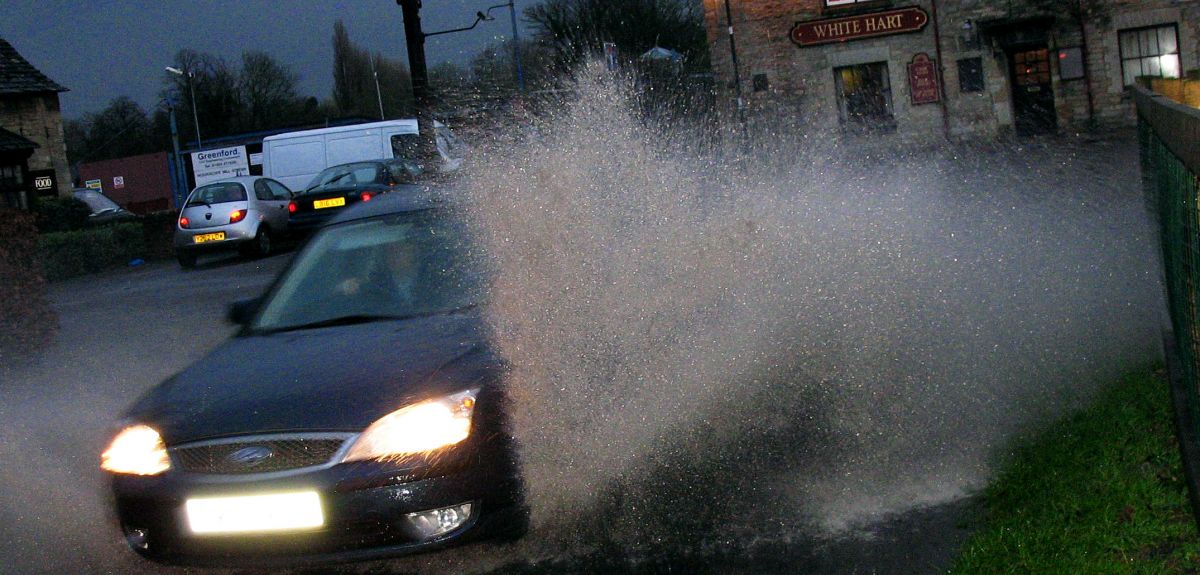
Global warming makes very wet winters 'more likely'
A citizen science project to assess the effects of global warming has reported a small but statistically significant increase in the probability of extremely wet winters in southern England.
Following preliminary assessments from the Met Office, Oxford University researchers undertook the first scientific experiment to analyse whether the risk of extreme rainfall has changed owing to climate change after the winter deluge between December 2013 and February 2014. Total rainfall in Oxford over the three months was the highest ever recorded by the University's Radcliffe Observatory since it was set up 200 years ago.
Scientists used the spare capacity on volunteers' home computers to compare tens of thousands of simulations of possible weather in our present-day climate with tens of thousands of simulations of a hypothetical world without the influence of past greenhouse gas emissions in the atmosphere using the same climate model. Comparing numbers of extremely wet winters between these two groups provides estimates of the influence of climate change on the UK weather. They found that a one-in-100-year winter rainfall event (i.e. a 1% risk of extreme rainfall in the winter of any given year) is now estimated to be a one-in-80 year event (i.e. a 1.25% risk of extreme rainfall in any given winter), so the risk of a very wet winter has increased by around 25%.
The researchers say this change is statistically significant thanks to the number of computer simulations they were able to run – over 33,000 computer models in the experiment. However, the researchers say that while their finding is statistically robust, the result depends on how man-made climate change is represented in the experiment. They used different climate models to estimate the pattern of global warming, which provided a range of possible changes in risk. In several cases, the models gave no change or even a reduction in risk, but overall the simulations showed a small increase in the likelihood of extremely wet winters in the south of England.
The experiment for the weather@home project, based at the University's School of Geography and the Environment, started in March 2014. The winter deluge affected large parts of south England and Wales, and as a consequence, large areas were flooded, some more than once during the three-month period. This led to a good deal of public debate, which at one point involved Prime Minister David Cameron, about whether the extreme rainfall and resulting floods could be linked to climate change.
Researcher Dr Friederike Otto from the weather@home said: 'It will never be possible to say that any specific flood was caused by human-induced climate change. We have shown, however, that the odds of getting an extremely wet winter are changing due to man-made climate change. Past greenhouse gas emissions and other forms of pollution have "loaded the weather dice" so the probability of the south of England experiencing extremely wet winters again has slightly increased.'
She added: 'Total winter rainfall, although useful as a benchmark, is not the direct cause of flood damage, so we are working with collaborators, such as the Centre for Ecology and Hydrology, to explore the implications of our results for river flows, flooding and ultimately property damage.'
Anyone who wants to join the project or volunteer spare time on their home computer should visit the weather@home website.
 Expert Comment: Why has Trump launched so many tariffs and will it cause a recession?
Expert Comment: Why has Trump launched so many tariffs and will it cause a recession?
 Expert Comment: Is it possible to support both AI innovation and human creativity?
Expert Comment: Is it possible to support both AI innovation and human creativity?
 Oxford unmasks the fraudsters behind the forgeries for April Fakes Day 2025
Oxford unmasks the fraudsters behind the forgeries for April Fakes Day 2025